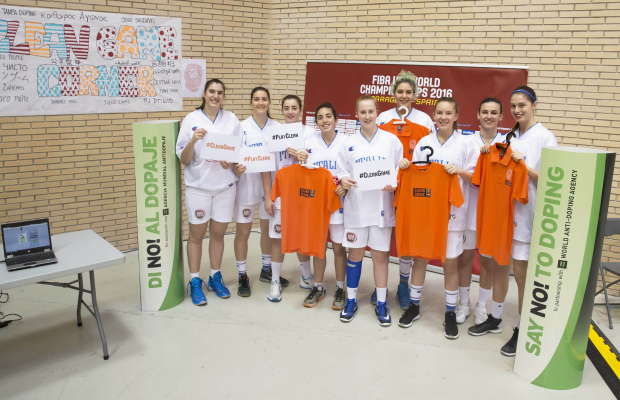Every person in sport, in every role, has the right to participate in an environment that is fun, safe, and healthy, and to be treated with respect, dignity and fairness. All forms of harassment, vilification, and abuse, be it physical, professional, or sexual, and inflicting, facilitating, or tolerating any non-accidental physical or mental injuries, are strictly prohibited by FIBA and can result in penalties and punishments.
Forms of abusive behaviour:
- Verbal abuse
- Slandering, ridiculing, bullying, gossiping, or defaming someone
- Persistent name calling, which is hurtful, insulting, or embarrassing
- Chronic teasing, belittlement, or frequent criticism that undermines the victim’s ability to perform
- Nonverbal abuse
- Threatening gestures, actions, or glances
- Shunning, excluding, or disregarding a person
- Offensive depictions of another through a visual medium such as a drawing
- Mimicking another in an offensive manner
- Psychological abuse
- Any treatment that may diminish the sense of identity, dignity, or self-worth
- Unwelcome act of confinement, isolation, humiliation or patronisation
- Intentionally leaving someone unattended when they need assistance
- Failure to respect privacy
- Physical abuse
- Non-accidental violence towards a player or other person
- Pushing, punching, beating, kicking, biting, burning or otherwise harming a player
- Age-inappropriate or physique-inappropriate training loads
- Forced alcohol consumption
- Systematic doping practices
- Damaging another’s propert
- Sexual abuse
- Conduct of a sexual nature where consent is coerced/manipulated or is not or cannot be given
- Inappropriate looking, sexual teasing or sexual harassment
- Sexual photography or forced use of pornography or witnessing of sexual acts
- Indecent exposure
- Rape, attempted rape, or sexual assault
- Cyber abuse
- Targeting another using social media, email, instant messaging, text messaging, or any other type of digital technology
- Tormenting, threatening, cyber-bullying, harassing, or embarrassing using digital technology
